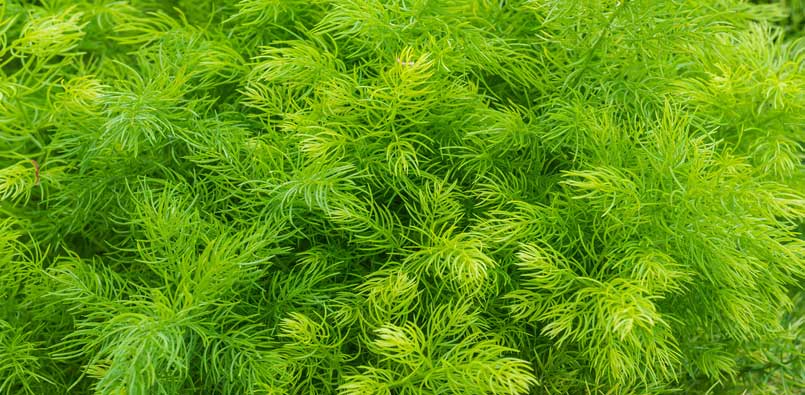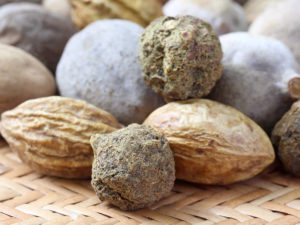
What is PCOD?
PCOD is the abbreviation of polycystic ovarian disease. Polycystic ovarian disease or syndrome (PCOS) is a relatively common hormonal disorder. This disease causes a number of different changes and symptoms in women at reproductive age. One common symptom among all women with PCOD is an irregularity in their menstrual cycle. Another symptom is the presence of excess male hormones called as androgens. This condition was named so because of the presence of enlarged ovaries with multiple small cysts. Thus named as polycystic ovaries disease. Although most of the women with PCOD have polycystic ovaries, some might not have. PCOD has also been called as the Stein-Leventhal syndrome. It’s better to consult with experts on this disease. Ayurhealing, Ayurveda hospital in Bangalore is known for its expertise in curing many health problems.
Causes of PCOD
Though the exact cause of the polycystic ovarian syndrome is not clear, a number of abnormalities have been found out and documented in women. There is some evidence for a genetic or an inherited cause for PCOD. But still, no specific genetic mutation or transformation has been identified to be the cause for the disease. It has also been shown that the ovaries with PCOD produce excessive amounts of male hormones. This leads to disruptions in the women’s menstrual cycle and results in impaired fertility and related problems.
PCOD is also found to be associated with insulin resistance problem. This refers to an impaired ability to utilize the secreted insulin. This abnormality is also found to be the cause of PCOD.
The presence of small cysts in the ovaries does not conclude the presence of PCOD. And this symptom is not specific to PCOD. Women who do not have PCOD may also have ovarian cysts. Ayurhealing has the best ayurvedic doctor in Bangalore is giving effective treatment for PCOD.
Check out the video – Dr. Mini Nair talks about the Role of Ayurveda in treating PCOD.
Symptoms of PCOD
PCOD leads to disruptions and fluctuations in the menstrual cycle. This typically begins around the onset of the puberty. These Menstrual cycles may be normal at the beginning and later becomes irregular. In some cases, the onset of the menses may be delayed. These menstrual irregularities found in PCOD are also accompanied by a lack of ovulation. And, because of this, the affected women may experience infertility at a later age. Thus, the desire for pregnancy is a factor which prompts many women with PCOD to look for medical attention.
Thus, an increase in the production of androgens by the ovaries in PCOD leads to excess hair growth in the areas suggesting a male pattern. This is also known as hirsutism. One can find thick and pigmented hair growth on the upper lip, around the nipples, chin and also on the lower abdomen area. Excess androgens might also lead to male pattern balding and acne in women.
Because of the reduction or absence in the ovulation, women with PCOD also have reduced levels progesterone. This hormone is normally produced after the ovulation in the second half of the menstrual cycle. This results in the growth stimulation of the endometrium.
The endometrium is the lining tissue present in the uterus. Thus, this leads to dysfunctional uterine bleeding along with breakthrough bleeding. Thus, an increased stimulation of the endometrium along with the absence of progesterone production is a higher risk factor. This might lead to the development of endometrial hyperplasia and also uterine cancer.
Other symptoms like weight gain, insulin resistance and obesity are also common in PCOD. About one-half of women with PCOD are obese. This is partly because of the Insulin resistance which is accompanied by elevated blood levels.
Women with PCOD are also found to have an increased risk of developing type 2 diabetes. Many studies have also shown abnormal blood lipid levels. Elevated levels of C-reactive protein is also a predictor of the coronary artery disease. Thus, the combination of elevated CRP levels, elevated cholesterol levels suggest an increased risk of heart disease on women with PCOD. But, this result is yet to be scientifically established. Ayurveda treatment in Bangalore for PCOD is common amongst many patients.
PCOD treatment in Ayurveda
Ayurveda has been found to be effective for PCOD treatment. Ayurvedic treatment of PCOD involves the usage of herbs, which boost fertility and maintaining a balance of female hormones. The treatment requires the patient to go through different therapies along with a balanced diet. Doing all of these play a vital role in overcoming PCOD related problems.
According to Ayurveda, both men and women, have semen which keeps the reproductive health in balance and check. This consists of androgen and estrogen hormones. So, any imbalance in the levels of these both hormones causes infertility. Ayurvedic treatments also require to follow some certain parameters for effective treatment.
Ayurveda treatment for PCOD
Some herbs work wonders against PCOD and other digestive disorders, insulin sensitivity, etc. These herbal medications also perform the same function as that of allopathic treatment. The PCOD treatment diet plan involves the following herbs and diet plans. It is recommended to cut down the intake of milk or milk products, except buttermilk.
-
Shatavari
Shatavari contains folic acid, vitamins A, B1, B2, C, E and minerals like phosphorus, magnesium, iron and calcium. Presence of these chemicals in this herb makes a perfect antioxidant. This also protects the reproductive system in the females. This herb also helps in improving insulin sensitivity. It has a lot of anti-diabetic properties. It also aids in improving fertility as well.

-
Shilajit
Shilajit is famous for its anti-inflammatory properties. It also is a great immunity booster. It rejuvenates the reproductive system in women with PCOD. While suffering from PCOD, women witness heavy bleeding which results in iron deficiency. Shilajit is well known for its iron increasing properties.

-
Turmeric
Turmeric is known for its variety of uses. Not only for cooking, but it is also used for beauty products and medicinal purposes. It is a great relief to women. It also helps in improving the insulin resistance and detoxifying the female reproductive system.

-
Vibhitaki
This herbal plant has a lot of health benefits for PCOS patients. It improves sugar metabolism. It is filled with antimicrobial and anti-inflammatory properties. It’s also known for curing digestive complexities for women. It is one of the panchakarma treatment for PCOD.

List of Ayurvedic Remedies for PCOD
PCOD ayurvedic treatment in Bangalore involves one or many of the following treatments.
1. Basti
It requires enema of the medicated oil which is introduced into the uterus. It also helps in the release of vitiated vatta, which gives rise to health problems.
2. Virechan (Herbal cleansing)
This therapy is beneficial for expelling toxins out of the body. It also involves the use of drugs that induce bowel movement. This expells dosha out of the rectum.
3. Vaman (Herbal vomiting)
This therapy is used for getting rid of Kapha from the body. This drug induces vomiting. It is one of the painless procedures, which relieves the toxins. It also helps to balance the hormones.
Related Post: Is it possible to cure Hypothyroidism with Ayurveda?




